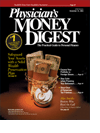Give and Receive Assets with Confidence
Rising affluence and an agingpopulation are expected to triggera vast transfer of wealthover the next 30 years. According to theSocial Welfare Research Institute atBoston College, approximately $40 trillionwill pass from one generation to thenext by 2052. With so much wealthchanging hands, the need for estateplanning is bound to increase. At thesame time, investment planning will beparamount for those who inherit assets.The following are a few planningthoughts for givers and receivers.
Necessary Protection
A variety of legal documents andtools can help ensure that your assets aredistributed according to your wishes.These documents and tools include awill, powers of attorney, and trusts. Onetype of trust you may want to consider isa living trust, which can help you controlassets while you are alive and potentiallyprovide tax benefits.
Beneficiary note:
Assets held outside your will, includinglife insurance contracts, IRAs, andemployer-sponsored retirement planaccounts, will pass directly to beneficiariesyou've named to receive them.Consequently, it's necessary to keep suchbeneficiary designations up-to-date andaccurate. In some cases,you may want to plan for special contingencies.For example, you may want toarrange for a custodian to manage aninvestment account for your teenagechild until they reach legal age.
Savings Opportunities
In addition to ensuring that your assetsare passed on to the right recipients,estate planning also allows you to reducetaxes. New federal estate tax laws wereestablished in 2001, which provide for agradual reduction of estate taxes through2010. Under current rules, taxpayers canexclude the first $1.5 million of an estate'sassets from federal estate taxes in 2004.This exemption increases to $2 million in2006, and $3.5 million in 2009.
The law also decreases estate taxrates. Currently, the top estate tax rate is48%. This rate gradually decreases to45% in 2007, and in 2010, the estate taxwill be repealed. In 2011, however,unless Congress intervenes between nowand then, the estate tax will revert to thepre-2001 tax structure, with a $1-millionexemption and a top rate of 55%.
While current tax laws create opportunities,vigilance is required. Forinstance, you may want to review yourwill and trusts, as well as rebalanceassets, to ensure that the division ofwealth between you and your spouseand other beneficiaries is accurate.
Windfall Precautions
Receiving an inheritance opens up itsown set of investment, tax, and estateplanning issues. Think carefully abouthow to make the best use of inheritedmoney. For example, should you use it toreduce debt? Should you invest it? If youdecide to invest the money, review yourpriorities. Figure out if you're on track tomeet your retirement needs. If you havechildren, make sure you're setting asideenough for their education.
Recipient reminder:
While a windfall can help you makeprogress toward achieving your financialgoals, it must be managed effectively toretain—or enhance—its value. For example,rolling a retirement plan distributioninto another qualified tax-deferredretirement plan may allow you to avoidcostly taxes. Wheneveryou are the recipient of a windfall,talk with your financial advisor aboutyour options. After all, your inheritancetoday could be part of the wealth youtransfer to the next generation.
is the president
of Apollonia Financial Services in
Elkins Park, Pa. All securities
offered through Linsco/Private
Ledger, member SIPC. Past performance
is no guarantee of future
results. The information presented is the opinion
of the author and not Linsco/Private Ledger. Mr.
Kleiman welcomes questions or comments at 800-242-1760 or info@apolloniafs.com. This article is
not intended to provide specific advice or recommendations
for any individual. Consult with your
financial advisor if you have questions.
Scott J. Kleiman
